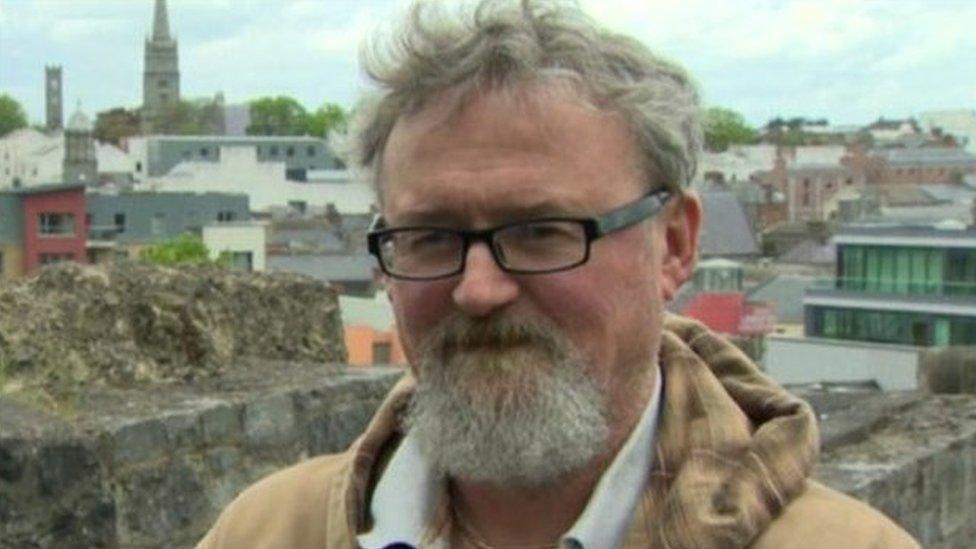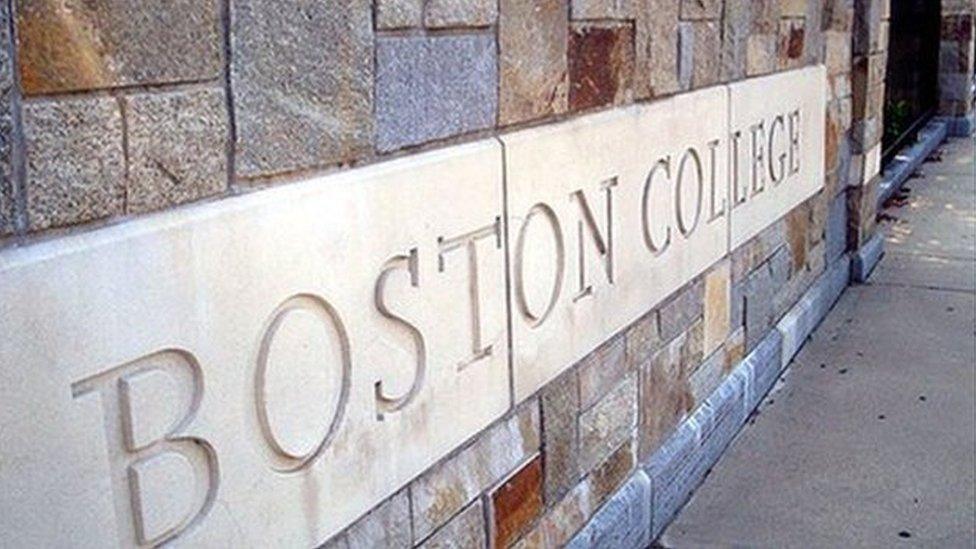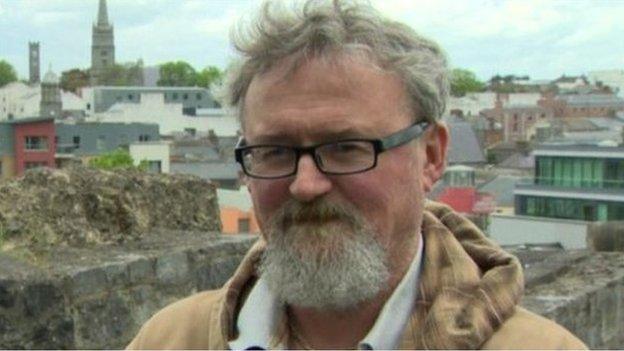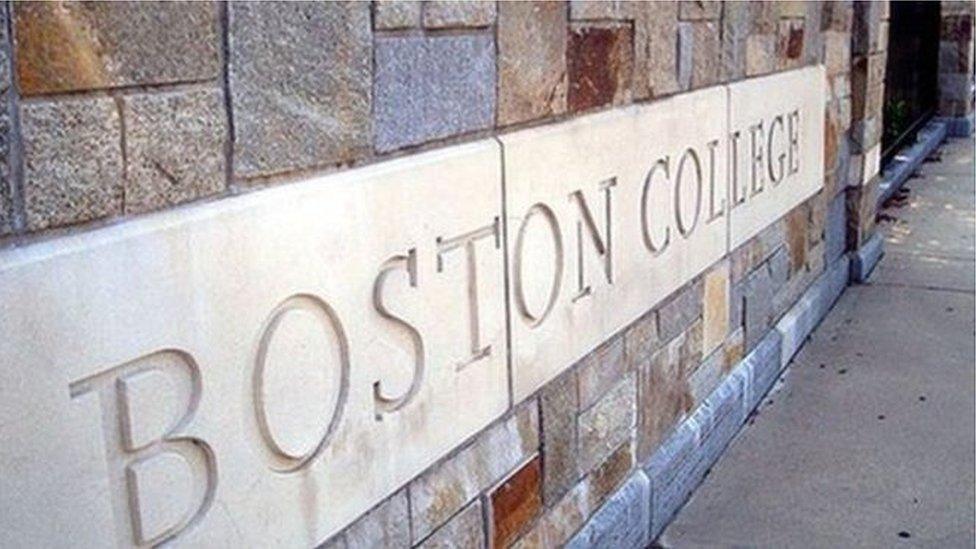Boston Tapes: Ex-IRA man wins first step in legal battle
- Published

Anthony McIntyre was jailed for murder in 1977
An ex-IRA man has won the first step in a legal battle to stop police accessing interviews he gave to a US university about his paramilitary activities.
Anthony McIntyre has been granted leave to seek a judicial review of the decision by police to issue a letter requesting the confidential recordings.
The PSNI wants the Boston College material as part of their investigation into alleged terrorist offences.
A full hearing is expected to take place in November.
The PSNI and Public Prosecution Service have issued an International Letter of Request (ILOR) in relation to the recordings.

The court heard the tapes have been handed to US authorities
It sets out the alleged offences being investigated including a bomb explosion at Rugby Avenue in Belfast in 1976 and membership of a terrorist organisation.
Senior judges at Belfast's High Court on Monday ruled they were not yet satisfied information in the request had been "scrupulously" examined.
Mr McIntyre's lawyers said he was the victim in the bombing and he was acquitted of the membership charge.
Ronan Lavery QC said: "The letter itself is replete with errors, which we say are misleading and require an explanation."
After death
Mr McIntyre, who is from Belfast but now lives in the Republic of Ireland, was jailed for murder in 1977.
Now an academic, he was one of the main researchers on Boston College's oral history project on the Troubles.
Dozens of loyalist and republican paramilitaries gave candid interviews on the understanding their account would only be made public after they died. The interviews have become known as the "Boston Tapes".
Detectives have previously won legal battles to secure the transcripts and tapes of interviews given by former IRA woman Dolours Price and ex-loyalist prisoner Winston "Winkie" Rea.
A subpoena seeking copies of Mr McIntyre's interviews has been served on Boston College by the British government, and the ILOR is part of this.
Mr McIntyre's lawyers say the tapes only contain details of offences for which he had already served a prison sentence.
Lord Justices Weatherup and Weir heard that Boston College had released the tapes to the US authorities.
They stressed that if PSNI officers travelled to Massachusetts to retrieve the recordings, they must remain under seal and be stored with the court until the challenge was decided.
- Published10 May 2016

- Published28 April 2016

- Published17 October 2019
